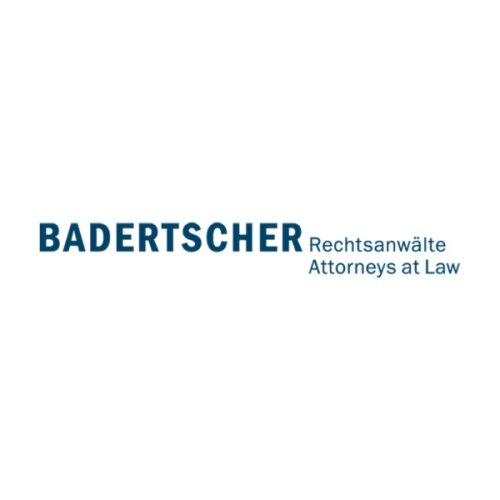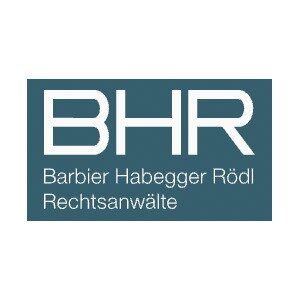Best Restructuring & Insolvency Lawyers in Zug
Share your needs with us, get contacted by law firms.
Free. Takes 2 min.
List of the best lawyers in Zug, Switzerland
About Restructuring & Insolvency Law in Zug, Switzerland
Restructuring and insolvency law in Zug, Switzerland, is designed to provide a legal framework for businesses and individuals facing financial distress. Zug is a renowned financial center in Switzerland, hosting many international corporations and startups. The local laws governing restructuring and insolvency are harmonized with Swiss federal law, primarily drawing from the Swiss Debt Enforcement and Bankruptcy Law (SchKG), as well as the Swiss Code of Obligations (CO). The main objectives are to enable debtors to recover financially, safeguard creditors' interests, and promote economic stability.
Why You May Need a Lawyer
Legal assistance is crucial when dealing with restructuring or insolvency matters in Zug. Common scenarios where individuals and businesses require legal help include:
- When a business is unable to meet its financial obligations and needs to restructure its debts
- When a creditor wishes to initiate debt enforcement procedures against a debtor
- When insolvency or bankruptcy proceedings are about to commence
- During the negotiation and drafting of restructuring agreements with creditors
- If a company is considering applying for a court-mandated moratorium (Nachlassverfahren)
- For advising directors and managers on their duties and liabilities in financial distress
- Assisting foreign entities with Swiss insolvency procedures
- Preserving assets or taking precautionary measures against potential legal claims
- Developing turnaround strategies for at-risk businesses
A lawyer can ensure compliance with Swiss law, protect your rights, and help you achieve the best possible outcome during financial distress.
Local Laws Overview
Restructuring and insolvency processes in Zug are regulated by Swiss federal law but implemented locally. Key aspects include:
- Debt Enforcement: The Swiss Debt Enforcement and Bankruptcy Act (SchKG) provides procedures for creditors to enforce monetary claims, including debt collection, seizure, and bankruptcy.
- Restructuring/Moratorium (Nachlassverfahren): Debtors in financial difficulty can apply for a court-approved moratorium to prevent creditor enforcement while negotiating a restructuring plan.
- Bankruptcy Proceedings: If restructuring is not possible, courts may order the liquidation of a business's assets to satisfy creditors in a defined order of priority.
- Directors’ Duties: Company directors have specific duties to avoid further harm to creditors once insolvency becomes apparent, including filing for bankruptcy if necessary.
- Cross-border Cases: Zug-based businesses may be involved in international insolvency cases. Swiss law provides rules for recognizing and handling foreign insolvency proceedings.
- Fraudulent Preferences and Actions: Laws protect against fraudulent transactions that unfairly favor some creditors over others prior to insolvency.
Frequently Asked Questions
What is the difference between restructuring and bankruptcy in Switzerland?
Restructuring refers to legal processes that allow financially distressed businesses or individuals to reorganize their debts and operations to avoid insolvency. Bankruptcy is a formal court process that leads to the liquidation of assets and distribution of proceeds to creditors.
What happens if my business cannot pay its debts in Zug?
If your business is insolvent, you can seek a restructuring moratorium or, if recovery is not feasible, initiate bankruptcy proceedings. Consulting a lawyer early can help explore all available options.
Can individuals also file for restructuring or bankruptcy?
Yes. While restructuring proceedings are most common for businesses, individuals facing financial hardship may also initiate debt enforcement or bankruptcy proceedings.
How long do insolvency proceedings typically take in Zug?
The timeline depends on the complexity and size of the case. Simple bankruptcy proceedings may take several months, while complex restructurings or asset liquidations can take a year or more.
Are directors personally liable for company debts?
Generally, directors are not personally liable for company debts. However, if they fail to act upon recognizing the company's insolvency or breach their legal duties, they may be held liable for resulting damages.
What is the priority of creditor claims in bankruptcy?
Swiss law specifies the order of priority: secured creditors have priority over secured assets, followed by privileged claims (such as employee wages), and then other unsecured creditors.
What should I do if a debtor in Zug owes me money and appears insolvent?
You can initiate debt enforcement proceedings through the local enforcement office. If the debtor is insolvent, you may join bankruptcy proceedings to assert your claim.
How does cross-border insolvency work in Zug?
Switzerland recognizes certain foreign insolvency proceedings under specific conditions. Coordination is required between local and foreign authorities, and legal advice is essential in such cases.
Can restructuring stop all enforcement actions from creditors?
A court-approved restructuring moratorium generally suspends creditor enforcement actions for a limited period, providing time to negotiate a restructuring plan.
When should I seek legal advice in insolvency matters?
You should seek legal advice as soon as you anticipate financial difficulty or receive a creditor demand. Early intervention improves your chances of achieving a favorable resolution.
Additional Resources
Several resources and organizations can assist with restructuring and insolvency matters in Zug:
- Commercial Registry of Zug (Handelsregisteramt Zug): Official body for business registrations and related legal procedures.
- Cantonal Court of Zug (Kantonsgericht Zug): Responsible for insolvency and bankruptcy proceedings.
- Swiss Debt Enforcement and Bankruptcy Offices (Betreibungsamt Zug): Handles debt enforcement requests and bankruptcy filings.
- Swiss Bar Association (SAV/FSA): Directory of certified lawyers specializing in restructuring and insolvency law.
- Local Chambers of Commerce: Offers information and seminars on business law issues.
Next Steps
If you are facing financial distress or considering restructuring or insolvency in Zug:
- Gather all relevant financial documents such as contracts, loan agreements, and asset statements.
- Contact a qualified lawyer who specializes in restructuring and insolvency law in Zug.
- Consult with accounting and business advisors to understand the full scope of your situation.
- Act promptly. Legal options may be limited if action is delayed.
- Consider reaching out to local business support organizations for guidance and support.
Legal processes related to restructuring and insolvency can be complex and time sensitive. Professional legal advice ensures that your rights are protected and increases the likelihood of a constructive resolution.
Lawzana helps you find the best lawyers and law firms in Zug through a curated and pre-screened list of qualified legal professionals. Our platform offers rankings and detailed profiles of attorneys and law firms, allowing you to compare based on practice areas, including Restructuring & Insolvency, experience, and client feedback.
Each profile includes a description of the firm's areas of practice, client reviews, team members and partners, year of establishment, spoken languages, office locations, contact information, social media presence, and any published articles or resources. Most firms on our platform speak English and are experienced in both local and international legal matters.
Get a quote from top-rated law firms in Zug, Switzerland — quickly, securely, and without unnecessary hassle.
Disclaimer:
The information provided on this page is for general informational purposes only and does not constitute legal advice. While we strive to ensure the accuracy and relevance of the content, legal information may change over time, and interpretations of the law can vary. You should always consult with a qualified legal professional for advice specific to your situation.
We disclaim all liability for actions taken or not taken based on the content of this page. If you believe any information is incorrect or outdated, please contact us, and we will review and update it where appropriate.









